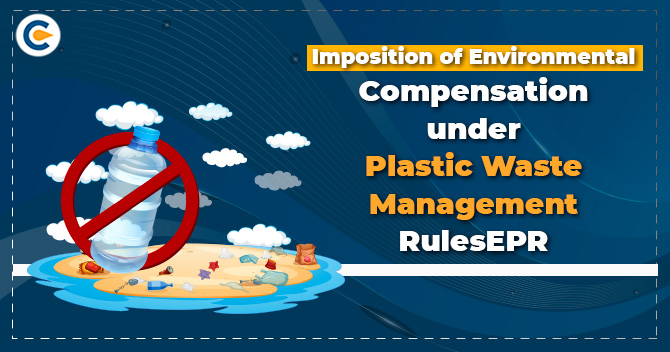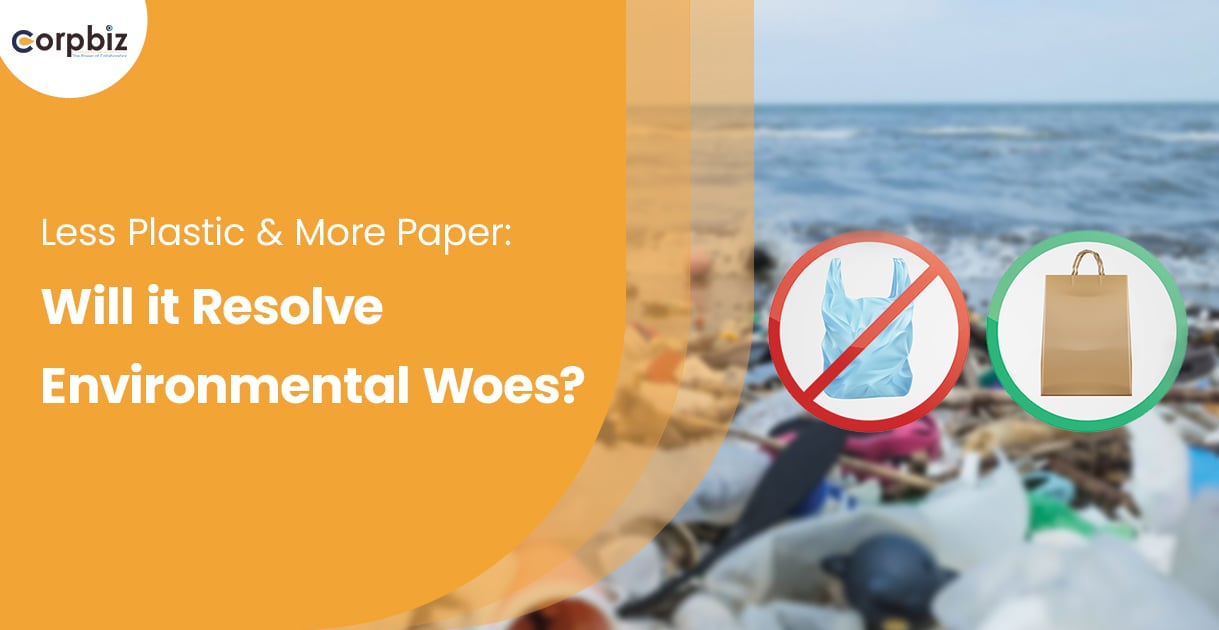Environmental Compensation refers to a policy-based instrument for environment protection that works on the Polluter Pay Principle. It has already been deployed in various nations, despite scope constraints. Outcomes from these implementations aren’t entirely satisfactory and tend to disrupt the significance of certain principles to fulfill the overall objective of environment protection.
Role of CPCB in imposing Environmental Compensation
- The National Green Tribunal in India[1], via its various judgements, has vested the CPCB with authority to underpin the methods to access and recoup compensation for the damage to the environment & use such amount in the action plan to ensure environmental safety.
- An endeavour has been made by the said authority to prepare a method for assessing environmental Compensation to be imposed on the concerned entity, authority, individual etc. to ensure environmental safety.
- Expert institutions/NGOs such as the Centre for Science and Environment-India, The Energy and Resources Institute, Institute of Economic Growth etc., were also prompted to finalize the report.
- The overall goal is to create a self-sense of responsibility towards the environment’s safety and make defaulters confront their mistake by levying Compensation, which will be used for environment protection/ restoration.
- Though this is the initial endeavour in India towards developing a system for assessing environmental Compensation, attempts have been made to ease out the process so the regulatory agencies can seamlessly adopt the methodology for implementation.
Formulae for Environmental Compensation
The Environmental Compensation will be based on the given mathematical expression:
EC = PI x N x R x S x LF
Where EC stands for Environmental Compensation
PI denotes the Pollution Index of the industrial sector
N refers to the number of days of violation that occurred
R is equivalent to A factor in Rupees for EC
S implies Factor for the scale of operation
LF is the Location factor
The formula considers the expected severity of environmental pollution on account of Pollution Index, a timeline of breaching in terms, the scale of operation on account of micro & small/medium/large industry & location on account of proximity to the large habitations.
Norms relating to Environmental Compensation under PWM Rules
- Environmental Compensation will be imposed based upon polluter pays principle w.r.t to non-compliance with EPR targets by PIBOs to safeguard and improve the environment and restrain, curb, and lessen the environmental pollution.
- CPCB shall underpin norms for imposition and accumulation of environment compensation on PIBOs, recyclers and end of life processors in case of non-compliance to obligations cited in these guidelines, and the same will be notified. The directions relating to Environmental Compensation will be updated as required.
- The Environment Compensation, as applicable, will be imposed by CPCB on the PIBOs functioning in more than two states w.r.t in case of non-compliance to EPR targets and responsibilities in these directions.
- The Environment Compensation shall be imposed by the concerned SPCB on the PIBOs not functioning in more than two states/UTs, plastic waste processors including recyclers and other processors –waste to oil/energy, w.r.t non-conformity with EPR targets underpinned under these guidelines. In case the SPCB or PCC does not respond in prescribed duration, the CPCB shall roll out guidelines to SPCB/PCC.
- Payment related to environmental Compensation shall not absolve the PIBOs of the liabilities underpinned in these guidelines. The unfulfilled obligations for a given year shall be carried forward to the subsequent year for three years. In case the shortfall of EPR liabilities is addressed within the said timelines, the environmental Compensation imposed shall be reverted to the PIBOs, as shown below.
- Within 1 year of imposing of EC: 75% return;
- Within 2 years 60 per cent return;
- Within 3 years 40 per cent return,
Post completion of three years on environmental Compensation getting due, the complete amount of environmental Compensation shall be forfeited.
This arrangement shall permit for accumulation and recycling of plastic packaging waste by PIBOs later as well.
- The funds accumulated under environmental Compensation shall be routed to an individual Escrow account by CPCB, SPCB or PCC. The funds accumulated shall be used in accumulation, recycling & disposal of non-recycled, uncollected, or non-end of life disposal of waste, on which the environmental Compensation is imposed.
- Modalities relating to funding utilization for plastic waste management on a yearly basis would be advised by the committee for EPR implementation and sanctioned by the Competent Authority in the Ministry
Cases that attract levying Environmental Compensation
- Emissions violate permit conditions, primarily prescribed limits/standards.
- Non-adherence to the guidelines issues, such as direction for closure owing to non-installation of OCEMS, non-conformity to the action plans submitted etc.
- Intentional negligence of data submission or manipulation via tampering with the Effluent Monitoring systems/ Online Continuous Emission.
- Accidental emissions lasting for short timelines resulting in environmental damage.
- Intentional emissions- land, water & air resulting in the acute injury of humans or damage to the environment.
- Injecting of treated/partially treated/ untreated effluents to groundwater.
Conclusion
Environmental Compensation serves as a countermeasure that penalizes defaulting entities failing to comply with the approved EPR target. In a nutshell, it renders complete control to the governing authorities to compensate for damages that have been occurred on the part of eligible entities.
Read our Article:Obligations for E-waste Recyclers and Dismantlers under E-waste management rules











